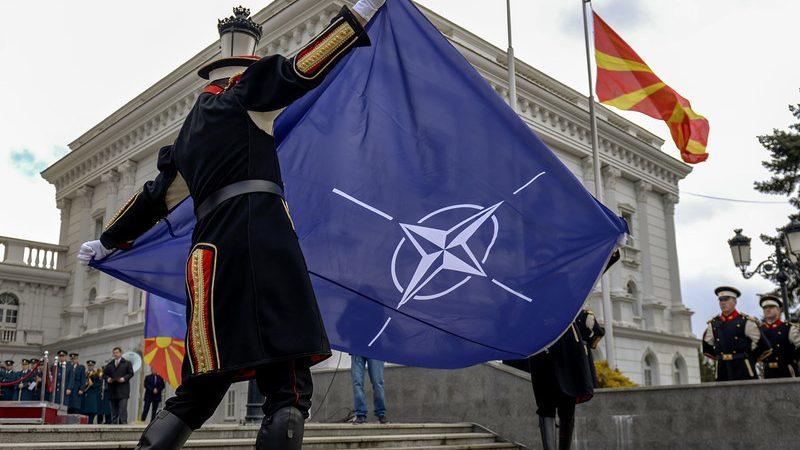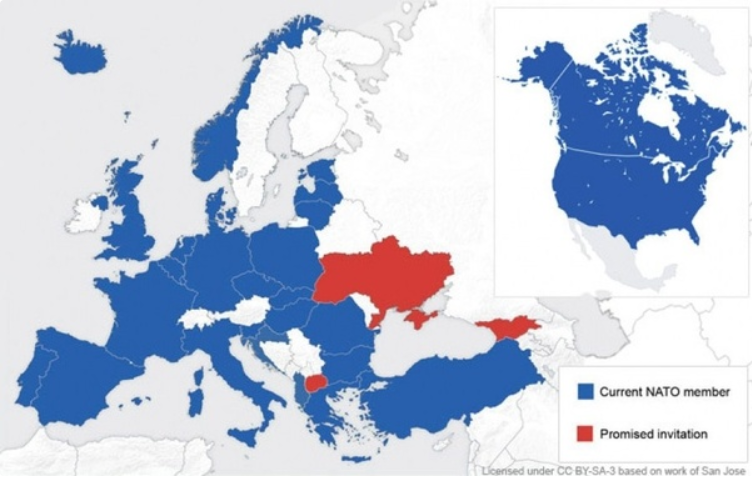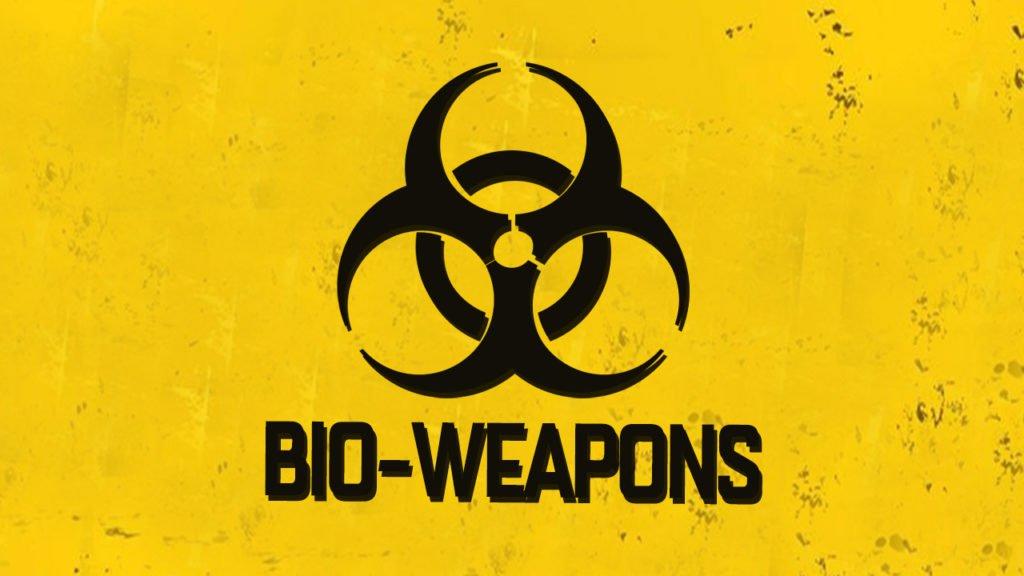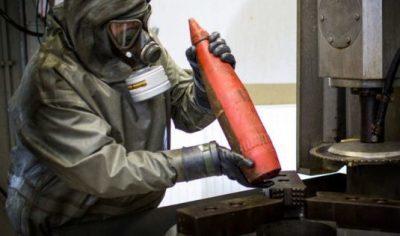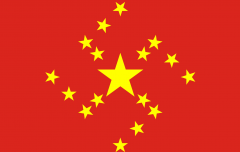Roger Ebert once called documentary director Errol Morris “as great a filmmaker as Hitchcock or Fellini.”
In keeping with that assessment, Morris received an ovation when he debuted American Dharma, his documentary about former Trump adviser Stephen Bannon, at the Venice Film Festival in 2018. But after early reviewers accused the Oscar-winning director of going too easy on the onetime head of the alt-light website Breitbart, Morris—a self-described liberal who says he was shocked to discover people thought he was promoting rather than exposing Bannon’s views—found it impossible to get a distribution deal in the United States. It was the first time in decades that the acclaimed director of The Thin Blue Line and The Fog of War couldn’t get a film into theaters.
In February 2019, Morris tweeted, “Fuck ’em. I will distribute the movie myself.” By the end of the year, American Dharma made it to the multiplex.
In November, Reason‘s Nick Gillespie sat down with the 71-year-old filmmaker for a conversation about the censorious early reactions to his new film, why he thinks we’re in a golden age of documentary filmmaking, and what he learned—and didn’t learn—about Steve Bannon’s philosophy.
Reason: Let’s start with the title, American Dharma. Steve Bannon comes back to the idea of “dharma” as central to his worldview. What is it and why is it so important to him?
Morris: It’s hard for me to talk about Bannon’s philosophy, because Bannon’s philosophy is a hodgepodge of Catholicism, Hindu philosophy, pop psychology. It’s almost like a vomit pad of various unsorted and undifferentiated ideas. I’d made a career of chronicling various kinds of self-deception, of people who imagine themselves one way, but in fact they are wrong.
Here, I have a guy who sees himself in Napoleonic terms. He imagines himself as this world-historical individual who’s changing the political landscape and ushering in a new age for the working class under the banner of Trumpism. But underneath all of it is nonsense talk. The populist who goes to Harvard Business School, works for Goldman Sachs, takes money from billionaires, starts [arguing against] pluralism. What is this? To me, as often as not, it comes very close to—what’s the technical term?—bullshit.
At a certain point in the movie, Steve Bannon lays out three big things that he says are Bannonism: stopping mass illegal immigration, bringing manufacturing jobs back from Asia, and ending pointless foreign wars. Is that his program, or is Bannonism that plus a million other things?
I suppose you could say that’s his program. Does the program really make any sense? Say you want to protect manufacturing jobs for the American working class. Do I think that’s a bad thing? No. I think that’s a good thing. But do I think that the right way to do it is to build a wall? No. I think that’s cretinous. I think that it’s intellectually dishonest. I don’t think it helps anybody or anything. It’s violent. It’s mean-spirited. It’s angry. It’s looking for scapegoats to blame.
At one point, Bannon says something like, “We all know what the problems are. It’s just a matter of: Do you have the guts to do what it takes to fix them?” You’re essentially saying that he’s tapped into a real problem—this idea that the middle class isn’t getting a fair shake, that the system is rigged, that large forces are screwing people over. But you disagree about what caused that problem and how to fix it.
Here’s how I’m susceptible to these arguments, and I quite honestly am susceptible. I grew up in the ’50s. My father died when I was 2 years old. My mother was extremely well-educated, a graduate of Juilliard, getting a doctorate in French literature at Columbia. She had to teach elementary school in order to support a family, which she did. Could you do that today? Could she do it today? The answer is probably not.
Is there greater income inequality now as opposed to then?
Yes.
But are standards of living lower?
Not for me. But for the masses, I don’t know. For someone who was in my mother’s situation, living today vs. living then, her standard of living would have been much lower. Am I wrong?
Yeah, actually. What is the typical American experience now? Do people have opportunity? Do people have material goods? Do they have access to education?
Can they buy a big-screen TV?
I grew up in the ’70s, and it was a big deal when we finally could afford a color TV.
Let me ask you: Why are people so angry? Have they always been this angry? Is this something different than what we’ve seen before? The ’60s were not a complacent period. But the ’50s—we’d come out of the war, and we had been victorious.
But they weren’t really complacent. I mean, you had the civil rights movement starting up.
Well, the ’60s turned into one of the nightmare decades. The beginnings of Vietnam. Assassinations galore. I wonder why am I so upset—and I really am upset—by politics [today, in comparison to that].
This is part of what Bannon is talking about, right? And Trump? I mean, they thrive on anger.
They do.
The documentary weaves in Bannon’s love of movies, mostly American movies. What is he pulling out of movies like Twelve O’Clock High or Paths of Glory? Does that exemplify a particularly American oddness where you start to live your life refracted through movies that you may or may not be misinterpreting completely?
Oh, movies are so much part of our lives. I found out Bannon’s favorite movie was Twelve O’Clock High. It’s Gregory Peck’s finest performance without any doubt in my mind—better than To Kill a Mockingbird.
Who does Gregory Peck play? General Savage. It’s a great name. It’s a name you would see in Dickens. General Savage, who is commanding this group of aviators charged with bombing the shit out of Nazi Germany, and at the same time risking their lives—even more than risking their lives. Going up over Europe with the prospect of almost certain death. And General Savage says to his troops, “Consider yourself already dead.”
[To understand] Bannon, it helps us to understand this. You will do your duty. You will follow through to your destiny—your dharma. You will stop thinking about yourselves. You will think about nothing other than victory. It may be one of the darkest and most nihilistic movies ever made.
There was a New Yorker review. The headline was “Errol Morris Lets Steve Bannon Off the Hook.” Then there came a moment where Bannon himself was canceled. He was going to speak at the New Yorker festival with David Remnick, and it was stopped. After that, your movie didn’t get the distribution that it would have otherwise gotten. What’s it feel like when you produce something and it’s an interesting, in-depth discussion with a person who was in a position of power, and you’re revealing his inner workings, and then somebody accuses you of “giving him a platform.”
What do you do if you were me? You think about killing yourself. I didn’t do it. Call me a coward.
You’re no Steve Bannon.
You feel, if you’re me: “Should I have made this film?” I’m susceptible to criticism. If people tell me I’m no damn good, I’m certainly willing to entertain that possibility.
But the experience was so damn weird. People became so angry with me and with the movie. They certainly wanted to deplatform not just Bannon; they wanted to deplatform me and American Dharma. I would read reviews saying that this movie was toxic. That was a word that would appear again and again. That it was poisonous, that it should never have been made, that it shouldn’t receive distribution.
In one review, someone said that it had discredited everything I had ever done. It had lifted the curtain on my lack of moral fiber. Does one enjoy reading that kind of thing? Not so much.
Do you worry that reflects a broader sentiment? People on the progressive side of things were saying you shouldn’t be talking to somebody like Bannon, because to do so is to somehow betray what is right—we shouldn’t be engaging in conversation with people we disagree with. Do you worry that that’s a place that we’re getting to as a society?
A place we’re getting to? We’re there.
How do I even explain it? People [were] so deeply freaked out by what happened in 2016 that they just wanted to make believe it never happened. Or if it did happen…we were the victims of a terrible conspiracy.
People want to disassociate themselves from it, from the horror of it. “Mommy, mommy, please make it go away.” I don’t think I understood how strong that feeling of just out-and-out despair and fear—I still feel it acutely, two plus years after the election.
Do you feel like now—with a little bit of time and the fact that Bannon is now no longer part of the Trump administration—that people can approach the movie without seeing red all the time?
Without going batshit crazy?
Yeah.
Bannon is back in the picture again. He is organizing a radio show podcast to help Trump in this period….He’s still here, and he’s still doing the same frightening, disruptive, malicious things that he’s been doing all along.
In the movie, there’s a sense that he’s a bullshit artist. Was he responsible for Trump’s victory, do you think? Or is he a very good salesman, and he knows how to take credit for a sale that was going to take place anyway?
I don’t think it was a sale that was going to take place anyway. I don’t like his politics. I don’t like his crackpot ideologies. But I do buy into his belief that he made a big difference in the election.
I wish it weren’t so. But he from early on decided to go after Hillary Clinton. [Peter Schweizer’s] book Clinton Cash—it’s not well known, but Schweizer was writing previously about Hunter Biden and Joe Biden in the Ukraine.
This is all a playbook….I don’t want to suggest some kind of arcane conspiracy, but these people were successful. I mean, if the aim was to bring Hillary Clinton down by hook or by crook—
Does it matter if it’s by hook or by crook? Hillary Clinton, the Bidens, and Trump—they reveal how power operates at a very high level. And to many people, when that’s revealed, they say, “There’s something wrong here.” It may not be the worst thing in the world for us to understand how influential people manage to arrange things to their benefit.
Probably not. You feel that someone in the last two or three years has lifted up a rock and you see all of these bugs—Democratic and Republican bugs—crawling around underneath the rock. It makes me wonder whether this whole idea that I’ve had of America is just a delusion.
And that’s in America, which is certainly not without dark corners, but it’s a happier place than many others.
I used to talk about fig leaf equality—that no one really believes in equality, but they do believe in paying lip service to equality. It’s the appearance of equality, tilting towards rather than against equality. Nowadays I feel that everything that to me made America America—not because there was perfect equality, perfect freedom, perfect fairness, perfect justice—but somehow those as ideals have been utterly abandoned and replaced with a kind of cynicism. And even beyond cynicism, a kind of nihilism.
I am really interested in talking about this in connection to what I think is one of your great achievements: the series that appeared on Netflix, Wormwood, about the ways in which the Defense Department and the CIA were dosing people with LSD, or experimenting on their own people in different ways. You’ve pulled back the pleasant paint job and revealed a real American Gothic underneath. You’re showing how things actually operate. Can you do that and not inspire, at least for a period of time, cynicism?
I don’t know.
You need the Church Commission hearings, the Rockefeller Commission hearings, so people will understand all of the awfulness that the American government was doing. But then, how do you reset the playing field so that we don’t go right back into that?
Maybe you don’t.
When I was growing up in the ’50s—this was the time of the Warren Court, and I kind of love the Warren Court. I remember very well reading Anthony Lewis’ Gideon’s Trumpet, about the Supreme Court decision that said everyone is entitled to representation by a lawyer in a court of law. I remember thinking to myself, “What happens if all of these liberal Supreme Court justices are replaced by anti-liberal Supreme court justices? Then what?” I couldn’t quite imagine it. I can imagine it now.
You know, I’m on the left. No fooling. My only trouble with the left is the left usually isn’t left enough for me. I’m a filmmaker, so I try to make a film about it. I try to think about it in my own small way. Why is there this attack on immigration? Why is there an attack on the possibility of a more global economy? Why is this all going on?
American history is a series of anti-immigrant hysterias going back to the 1800s. If you look at the Democratic National Convention in the 1990s, Bill Clinton gave a long speech about how they were going to finally crack down on illegal immigration. Somehow, dislocations in the American economy were the fault of people sneaking across the Southern border to cut your grass or clean your pools for relatively cheap. We’re back to something like that.
This is where I want to complicate things for you, being on the left. When Bernie Sanders says that free trade is problematic—free trade is globalization. That’s why Chinese people and African people have higher standards of living than they did years ago. Is the backlash broader than a right-wing reaction?
It seems to be broader. I always tell people that the ceiling of the Sistine Chapel is misinterpreted. The scene where God is supposedly breathing life into Adam—I see it slightly differently. It’s God teaching the value of finger-pointing, patiently explaining to Adam, “You see, things are going to be very difficult out there. You really have to learn to blame other people for things that you yourself are responsible for or you’re never going to make any headway in this world.”
Bannon said something to me, you know: “Do you want foreigners all over this country?” Yeah! I’m a foreigner. I’m a Jew. My parents came here from Eastern Europe. I go to London now quite often because I’m involved in directing a project in London. Who knows what’s going to happen because of Brexit, but one of the things I like about London is that I see a lot of people from all around the world. They’re Muslims, they’re Christians, they’re Jews, they’re whatever. And to me, that makes the world a better place to live. My innate xenophobia hasn’t really developed yet, I guess.
Do you think that that kind of xenophobia stems from a lack of confidence? You talk about growing up in the ’50s. That’s the thick of the American century. And even though the Cold War was going on, America was winning. America was great. This is what Donald Trump is referring back to, right? Is a lack of confidence in America’s greatness leading to people saying we have to shut things down? We have to shut the borders down? We’ve got to shut the global economy down?
The realization that America does not have total unchallenged power in the world.
Brexit in Britain is certainly about that as well. There’s a hotel in Toronto that occasionally I stay at when I go to the Toronto Film Festival, and it’s this enormous hotel with literally thousands upon thousands of rooms. Someone at the hotel told me that 100 years ago, this was the biggest hotel in the British empire. And I said, “Well, now this hotel is bigger than the British empire.” More or less, it’s true. They don’t have the empire anymore. Things change. We don’t control the world the way we may have controlled the world in the immediate post-war period.
It’s kind of a relief, isn’t it, that we don’t have to be responsible for everything?
You don’t have to be responsible for everything. But are we going to be afraid of everything? Is everything just [going to be] run on fear?
There’s this line that Bannon would use again and again and again: getting our sovereignty back. Well, maybe I’m a different kind of human being. I don’t know even what would it mean for me to get my sovereignty back. Does that mean that I sit on my front lawn with a shotgun and say, “You kids get off my lawn!”? Would that be getting my sovereignty back? Throwing [Deferred Action for Childhood Arrivals] immigrants out of my country—is that getting my sovereignty back? It’s not something I think about. I don’t get up in the morning and say, “Who took my sovereignty?”
I want to talk about film in general and the distribution of film, and the possibilities that you’ve seen emerge over the course of your career. There’s so much going on outside of the traditional studios these days, whether it’s Amazon or Netflix. Do you feel like you’ve benefited from the end of the traditional production and distribution system?
Yes.
Can you talk a little bit about that? And is it good not just for you, but does it bring more voices and more possibilities into film and creative expression?
Things as a filmmaker are better now for me than they have ever been. Not that this stops me from complaining, but I have less to complain about. People are paying for me to work. My films—maybe with difficulty—are all getting distribution. I should be a happy camper.
More opportunities? Absolutely. Documentary film, [not long ago] no one would watch it. Now there’s just endless documentary film production. Cameras have gotten lighter. Budgets have gotten higher. I thought maybe the Bannon film would [be the end of] me. It has not. I’m still making stuff. I’m still working.
But I have this feeling, and I think it’s shared by a lot of people, that we just don’t really understand which way the world is going and why. There’s something mysterious out there. The internet has had such far-reaching consequences on everything from streaming video to the dissemination of information. No one really understands what’s going on. We know that stuff is changing rapidly, but not exactly how and what to do about it.
You started out by talking about people who responded negatively to American Dharma and your engagement with Steve Bannon, where they just didn’t want to deal with something horrible that had happened.
They want it to go away.
And one way to do that is to pretend that it never happened.
That is one way to do it, yes.
What do you hope for, now that the movie is getting the release that it arguably deserved a year ago? What is the thing that you want audiences to take away from it, more than anything else?
I want people to see the movie and to think about the issues that are expressed, to think about what’s happening in this country—perhaps why it’s happening—and to think really seriously about what to do about it.
What to do about it is not avoiding it. What to do about it is not pretending that nothing is happening, or that it was an accident, or that it was some implacable conspiracy imposed on us by the Russians or whoever.
I think we need to actually confront what’s going on in this country and try to work as hard as we possibly can to change things. And for me, quite simply, another four years of Trump I think would put a final nail in the American coffin. It’s not something that I look forward to.
This interview has been condensed and edited for style and clarity. For a video version, visit reason.com. For a podcast version, subscribe to The Reason Interview With Nick Gillespie.

from Latest – Reason.com https://ift.tt/323kGwD
via IFTTT
